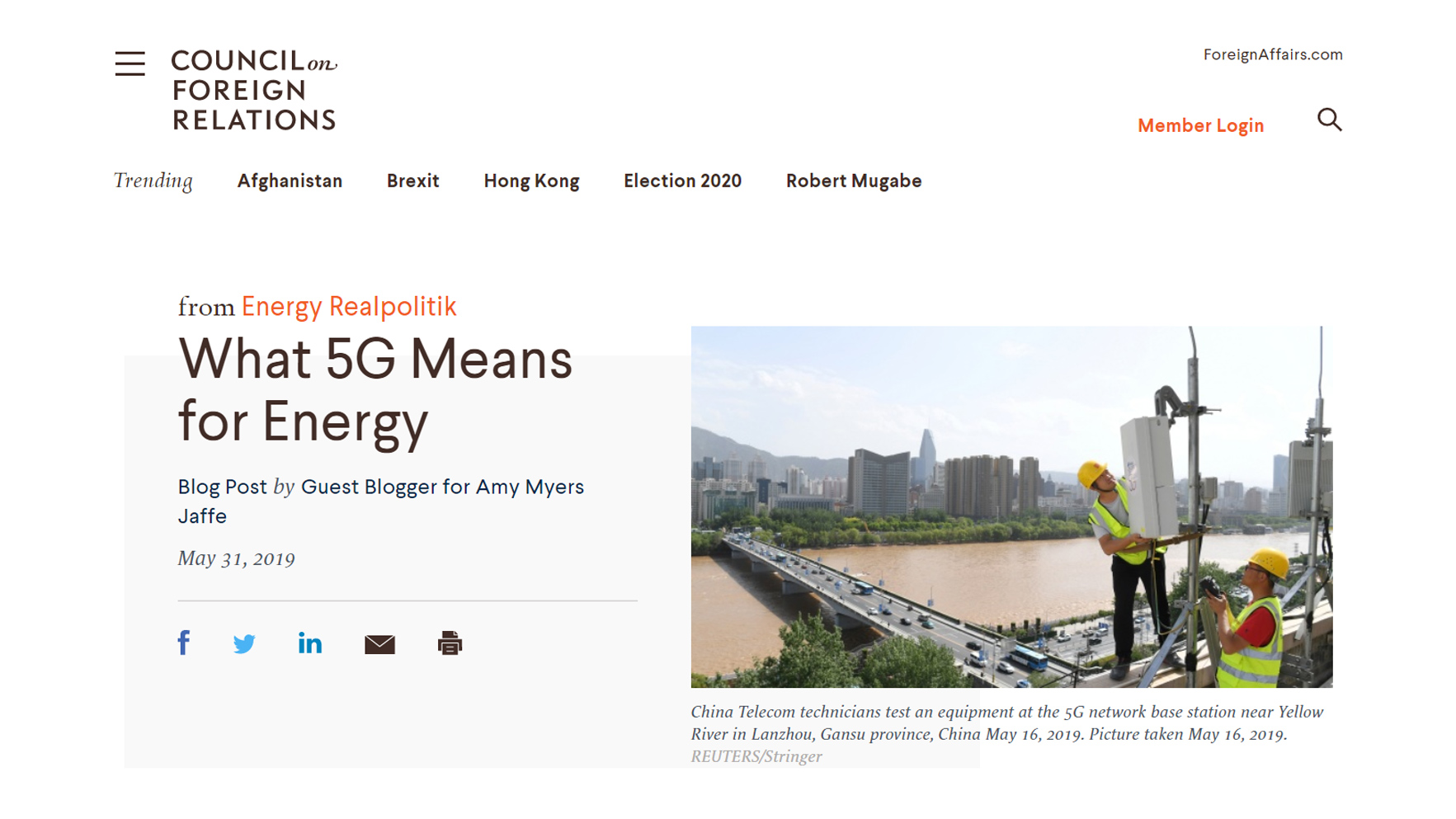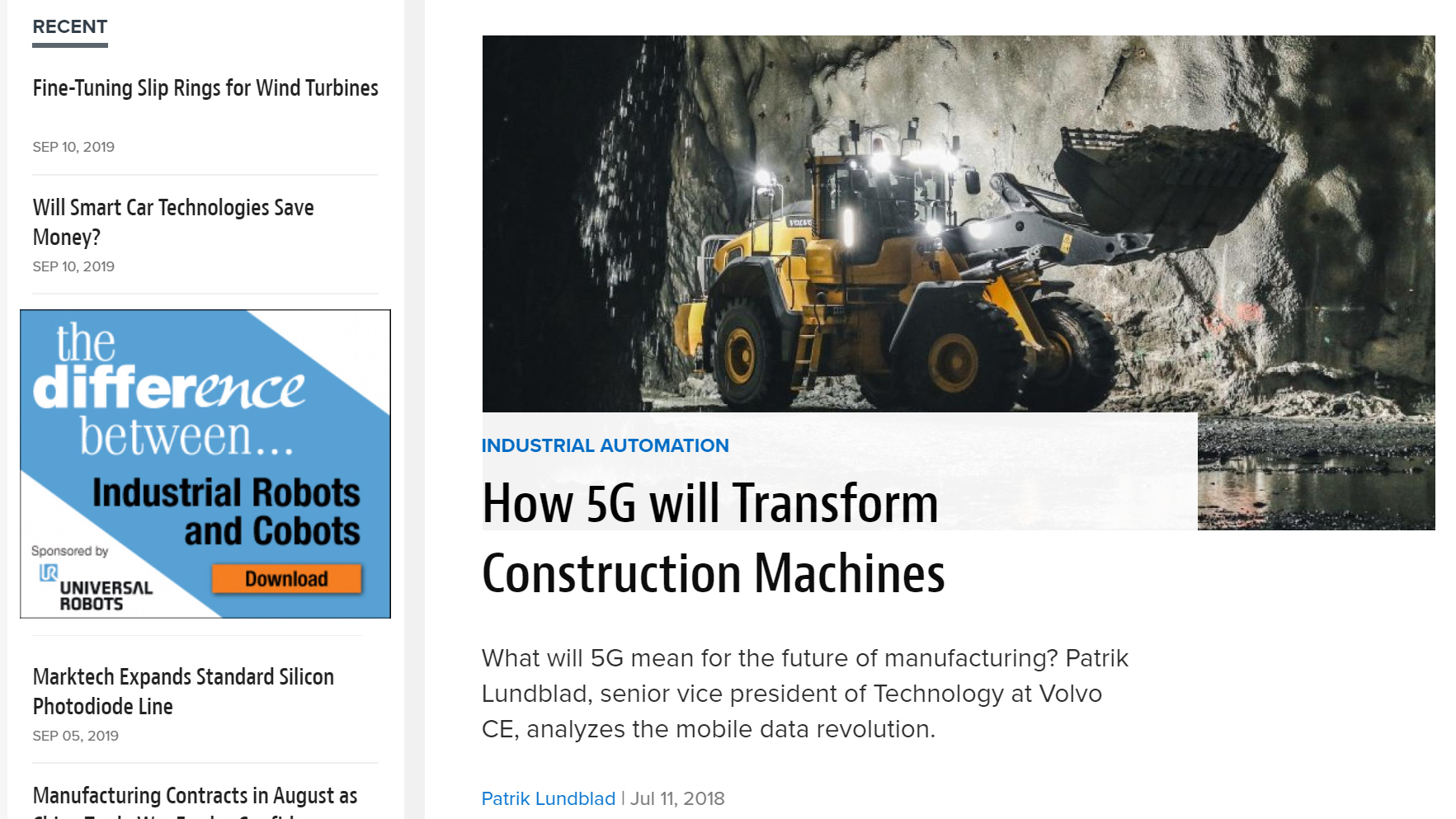Industry pro Anthony Brown reveals how 5G will transform construction
Anthony Brown, sales and marketing director at BW: Workplace Experts, reveals all.

Get up to speed with 5G, and discover the latest deals, news, and insight!
You are now subscribed
Your newsletter sign-up was successful
The continued rollout of 5G technology has multiple implications for the construction industry as a whole, but also brings new and exciting possibilities for communication, machinery, deliveries and immersive technology.
As the 5G network expands, it’s essential to think not just about hardware, but the huge amount of infrastructure required to manage the growth of data. Small cellular base stations, which are low power, short range transmission systems, will have to be built every 5000 feet or so in order for the signal to travel effectively.

More satellites needed
When tech entrepreneur Elon Musk wades in on the 5G debate, you know the topic’s reached a certain critical mass. Musk thinks that the full potential of 5G will not be realised without more satellites, in addition to more fibre connections. To this end, Musk’s company, SpaceX, launched 60 internet satellites in May this year from the Kennedy Space Center in Florida. When there are 420 satellites in orbit, the company says it will begin providing 5G services to SpaceX customers. This is just the start of Musks’ 5G investment.
Reports say that in less than a decade SpaceX plans to have as many as 12,000 of its satellites, which will then provide high-speed internet for millions of customers around the world.
A greater number of smaller data centres
As 5G processes large amounts of data at high speed, so there will be a growth in the number of data centres required. There is a particular trend towards more frequently occurring, smaller data centres, processing data as near as possible to the data source to meet the need for speed that 5G promises. These smaller data centres will co-exist with larger, more remote data centres were used previously.
And all of the above introduces real construction sector issues. The millimetre wave communications at which 5G operates doesn’t always work well with certain construction materials, so compromises may have to be made in terms of how buildings are constructed: will they meet governmental regulations; will they match up in terms of aesthetics and what materials we need to use? Stakeholders from developers to occupiers, and all the contractors in between, are going to have to think carefully about the impact of 5G on the landscape and real estate.
As 5G is so much faster than the previous iterations of network - some estimate it could be 20 times as fast as what was available before - then energy consumption could follow suit. Using a vast amount more energy goes against the drive for energy saving and sustainability, which has come to the fore in the built environment sector in the last few years. But one potential energy-saving advantage 5G has over, say, 4G is that the aforementioned base stations can be put into ‘sleep mode’ (known as ‘ultra lean design’) when no one is using it - for example at night.
Get up to speed with 5G, and discover the latest deals, news, and insight!

There are also safety implications in using 5G. As the signal is stronger, staff can be more efficiently tracked, particularly useful if there are safety risks attached to tasks they are undertaking or where they are working (e.g. underground).
Here I’ve listed some key areas where I believe 5G will have a pronounced impact within the construction industry:
1. Delivery efficiencies thanks to IoT
Using 5G there is a major opportunity for our industry to transform on-demand deliveries. These can often be delayed due to traffic, an acute problem in London which has ramifications for project delivery times which wastes resources and potentially damages relationships between stakeholders. The Internet of Things (IoT) opens up the possibility of drone deliveries, bypassing hold ups on traditional transport methods and even speeding up the time supplies are delivered to site. At BW, we have a commitment to delivering defect-free fit out and refurbishment projects to London, so if 5G introduces quicker deliveries then it can only be beneficial to the construction industry. Self-driving vehicles may also become more of a reality thanks to 5G. Autonomous cars can use 5G’s faster connection to use hundreds of sensors to continuously review things like the weather and road conditions. A driverless car could potentially avoid obstacles in its path with the on-board computer making an instant decision or data processed and sent back via the cloud.
2. More possibilities for AR and VR
With 5G promising much more stable connections, faster data download and upload speeds and wider coverage, there have also been links to improvements in immersive technology. This brings new and exciting prospects for the construction industry. Visuals are already heading in this direction. At BW, we have a designated 3D visualisation team, which offers clients services such as 3D floorplans, CGI visuals, 3D printed models, virtual reality, flythroughs and headset walkthroughs. These ‘wow factor’ offerings allow BW to bring a project to life for the client and a visual can identify key details much faster than reading 2D drawings. BW continues to develop its capabilities digitally, with a lot more in the pipeline, so the prospect of technological advancements through the implementation of 5G creates an exciting future for our company and the construction industry in general.
3. Transforming construction machinery
5G offers vast potential through faster processing of mobile data, which could transform the construction industry’s machinery. Demand and competition in our sector means that we need to keep up-to-date with the latest technology to enable us to stand out and give our clients the best possible experience.

Self-driving machinery will not only inevitably save costs for clients through lower operation fees, but also means that site work can take place more remotely with fewer risks in hazardous environments. 5G could also benefit accuracy of mapping, signalling and communication between the machinery, which would be a huge time saver, as often there is a lag with the current equipment used.
4. Use of avatars and holograms
5G may even trigger more mainstream use of avatars and holograms. Instead of having to physically attend meetings, in the future we may see ourselves represented by a virtual being. Given that travelling to and from appointments takes up a proportion of largely unproductive time, not having to physically be in a space to meet stakeholders yet still be present could be a boon to those in construction where multiple projects on the go at the same time is the norm. And these holograms could become as ubiquitous as FaceTime is now with the ability to project them from a mobile or tablet, as these devices are able to handle greater amounts of data at much faster speeds.
Much like the very early days of 4G, we don’t yet fully know the tech that will be delivered by 5G. Once it’s true potential is unleashed, the capabilities it has will seem indispensable in 5 years’ time.
- All you need to know about 5G internet, and whether it'll replace cable
- Get the latest investment updates with our 5G stocks news
- We reveal how 5G technology works, and is set to transform the planet
- Experts are already looking to 2030, and here's what to expect from 6G
- Discover how 5G and Wi-Fi 6 will transform networking
Anthony Brown is sales and marketing director at BW: Workplace Experts. His is focused on extending occupier partnerships and frameworks. He also looks after the thought leadership program of research, seminars and roundtables. Before joining BW, Brown worked on the board of the UK’s largest fit out specialist where he oversaw the development of international alliances in the USA and Australia. BW is considered as one of the most forward-thinking workplace experts in the UK, promoting the delivery of world-class customer service.

